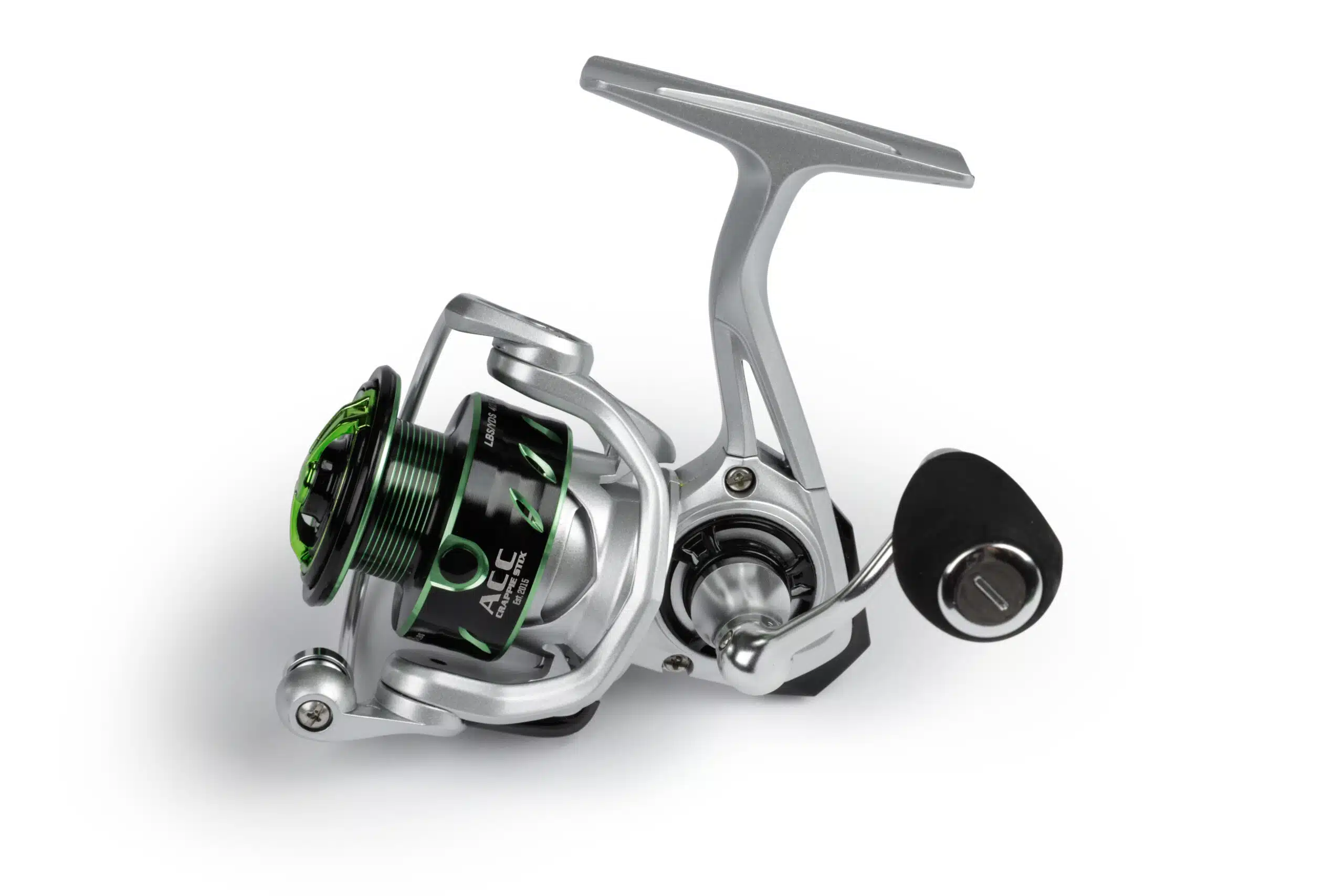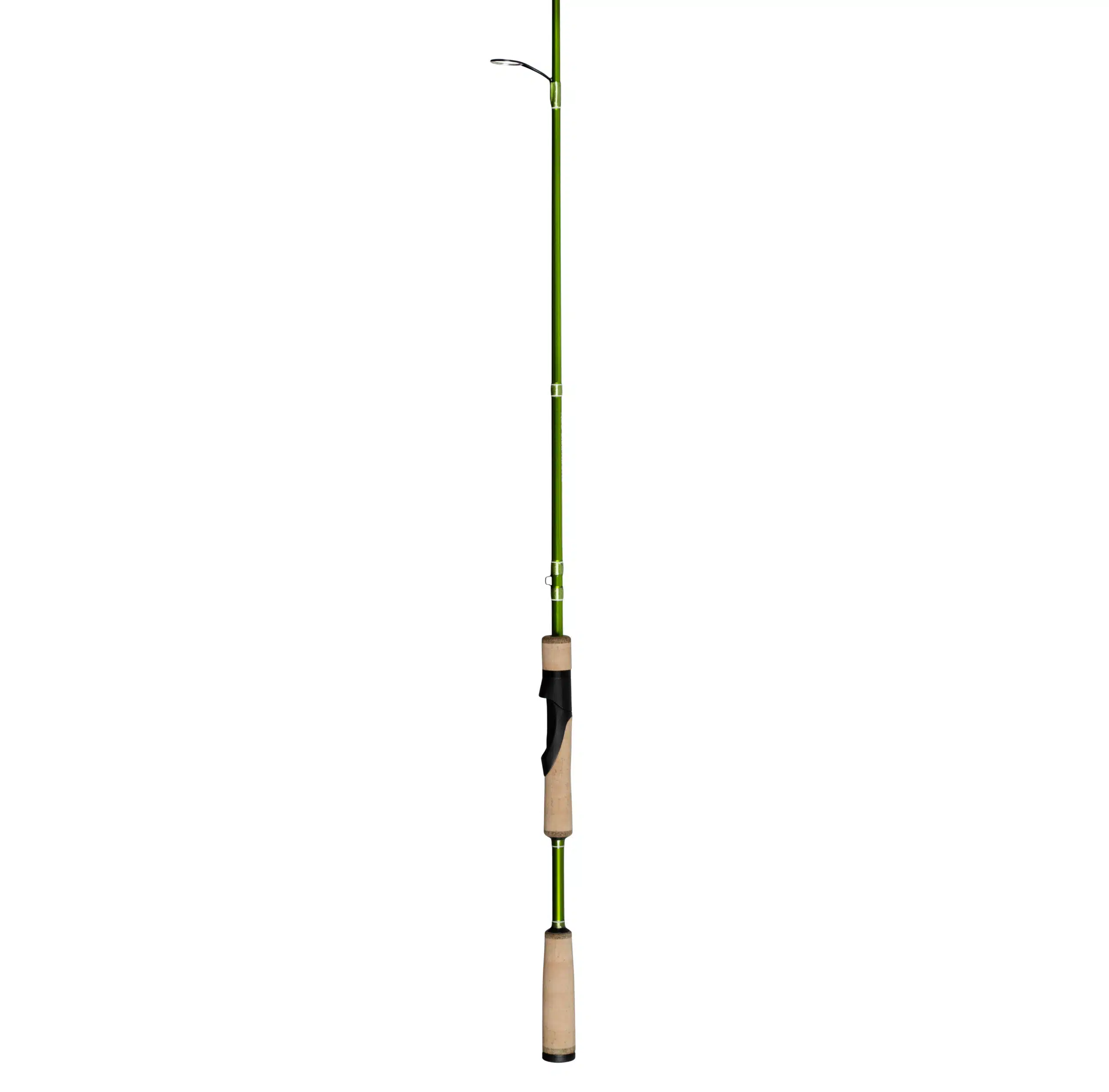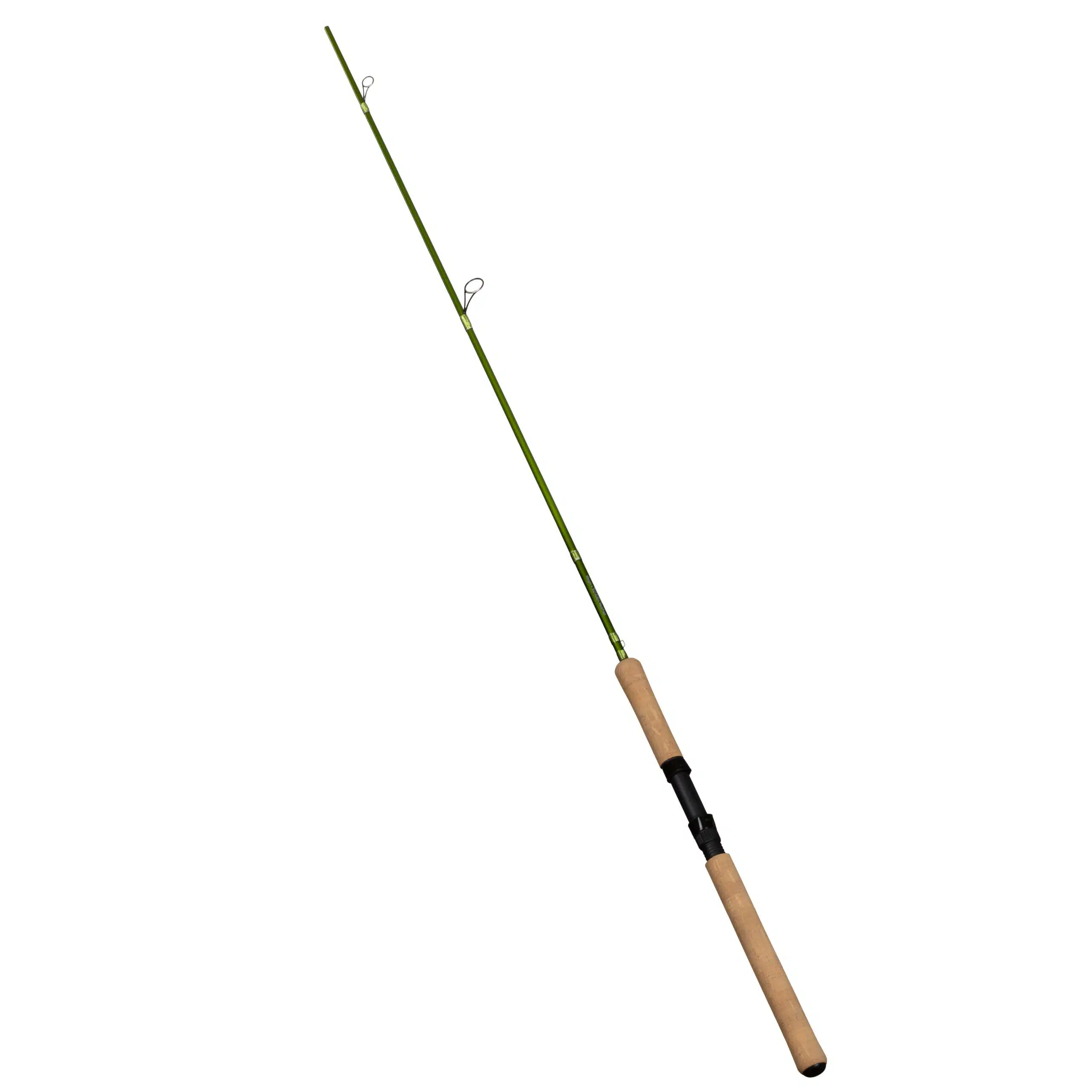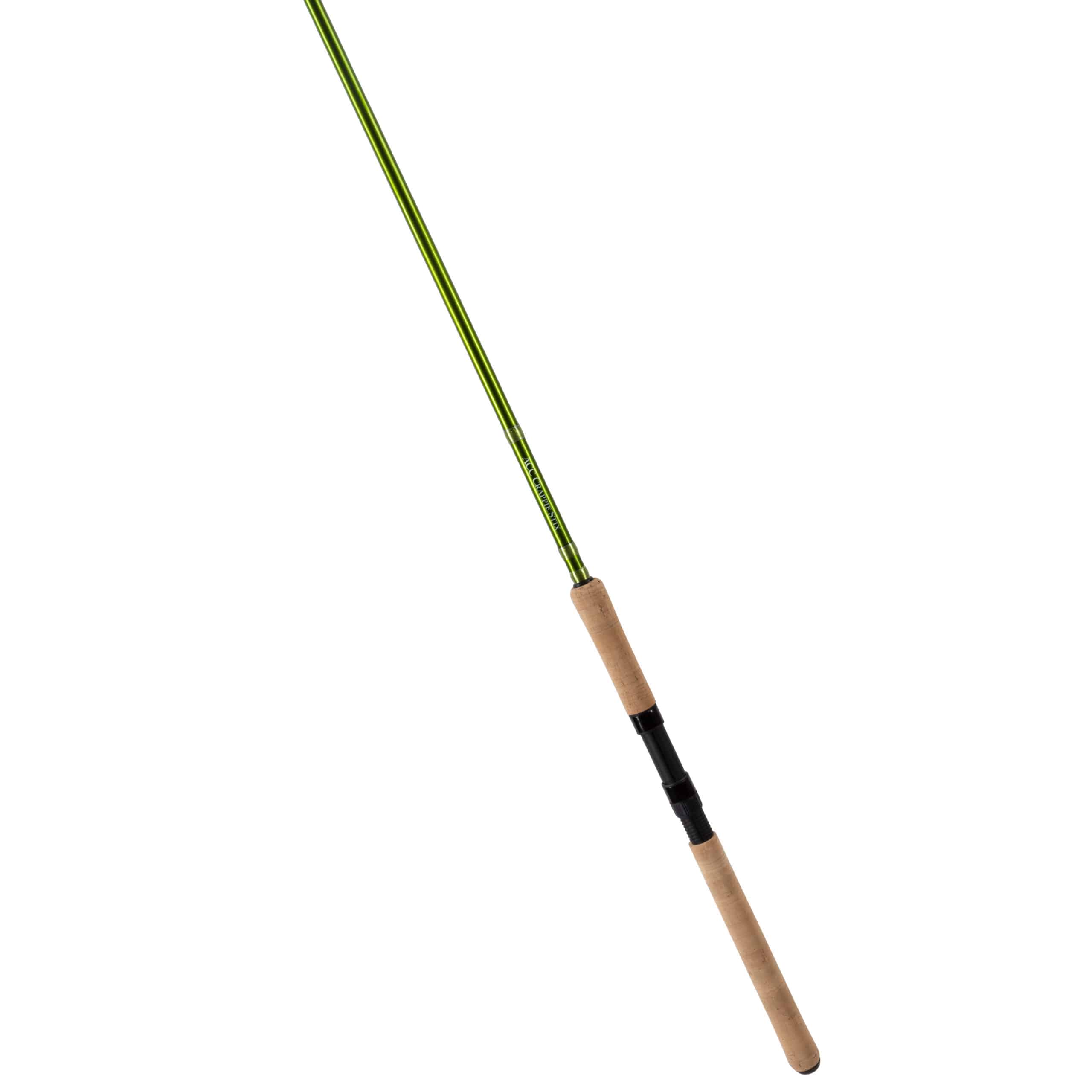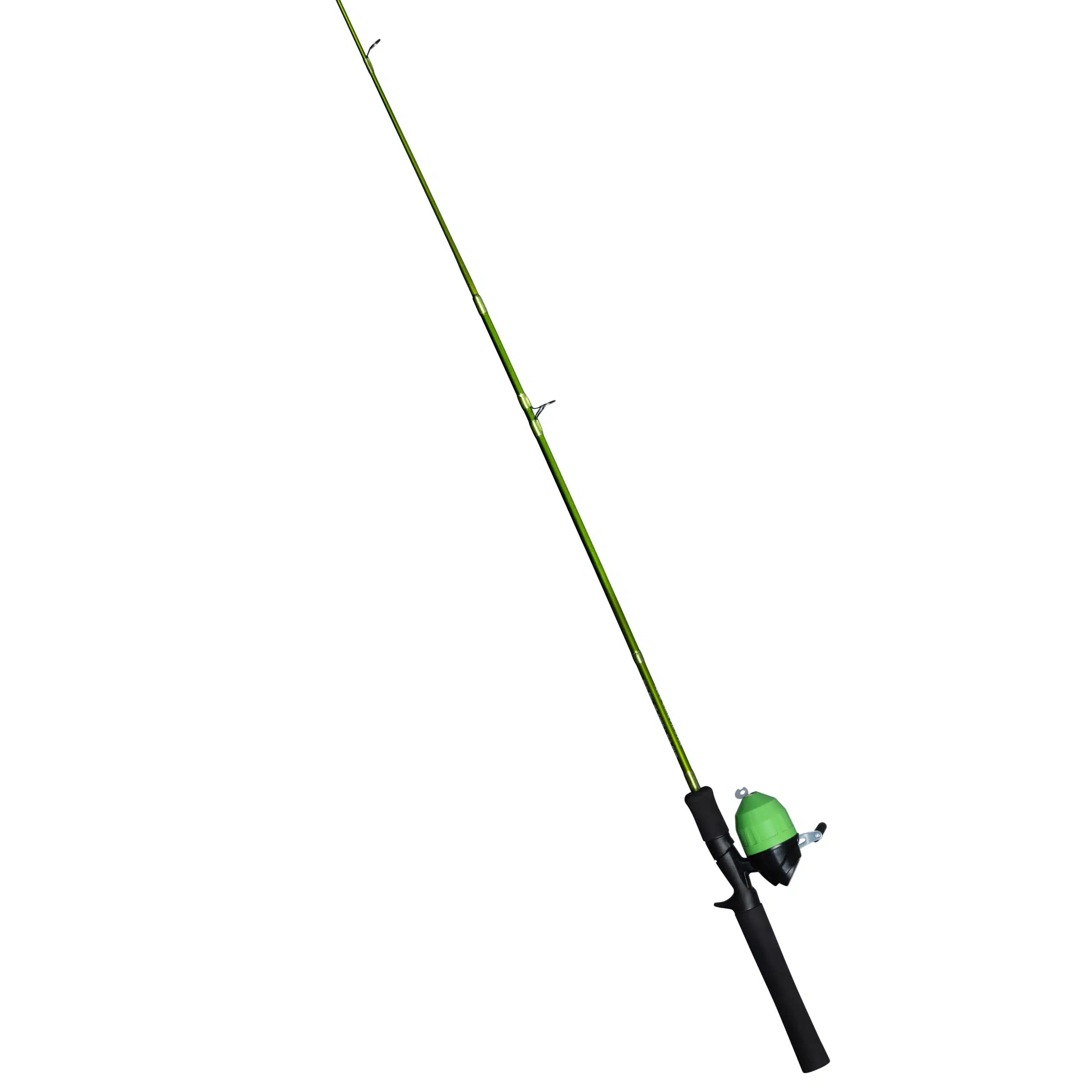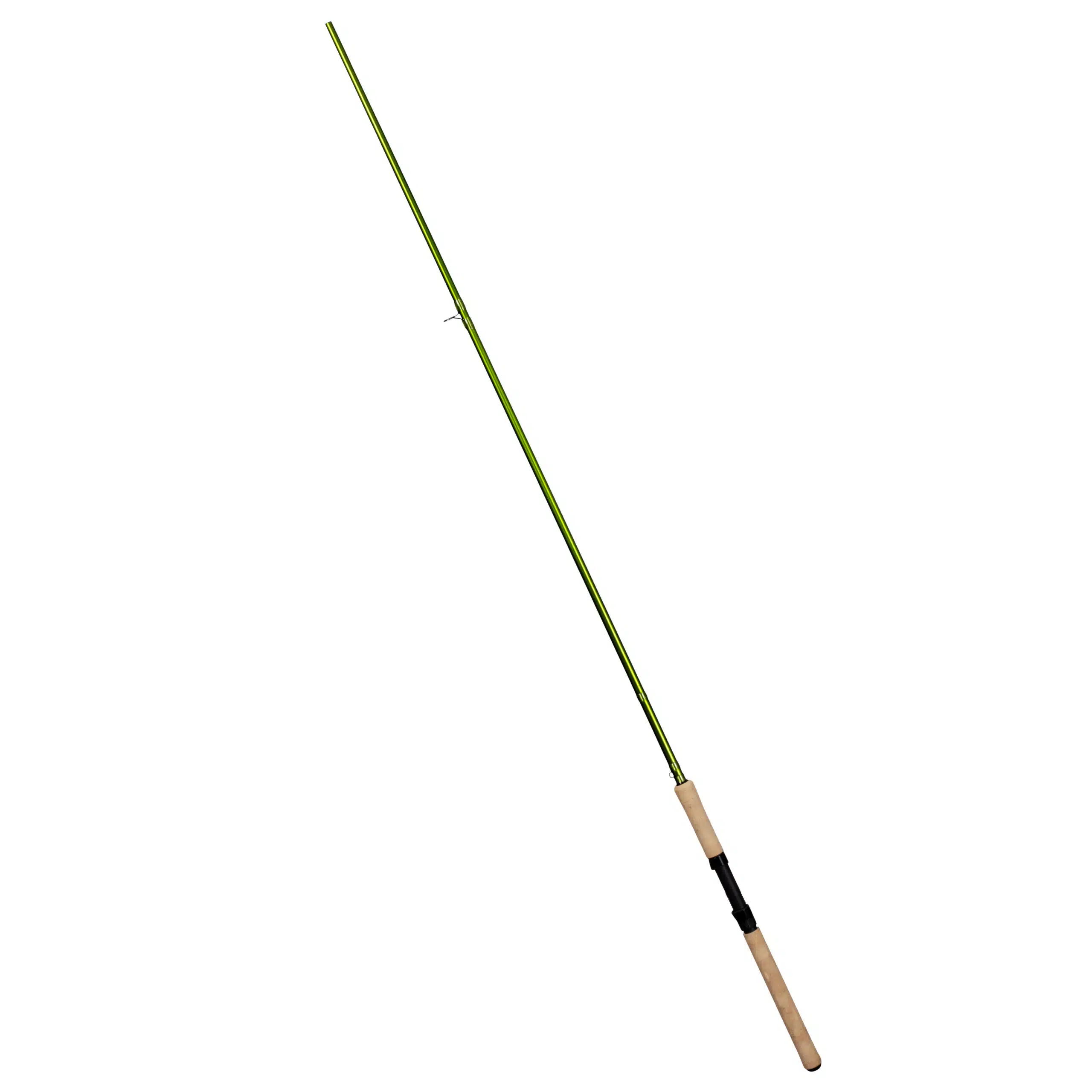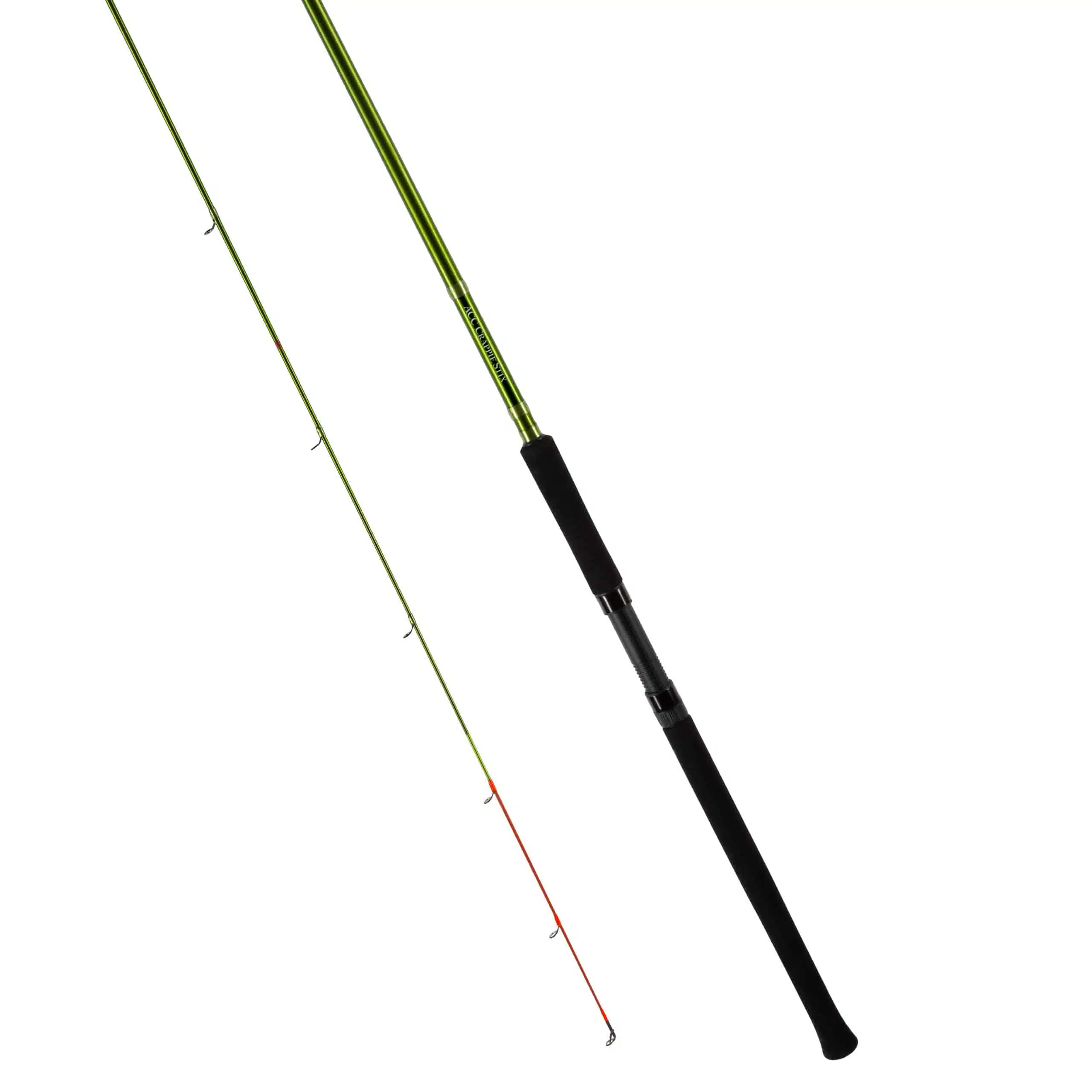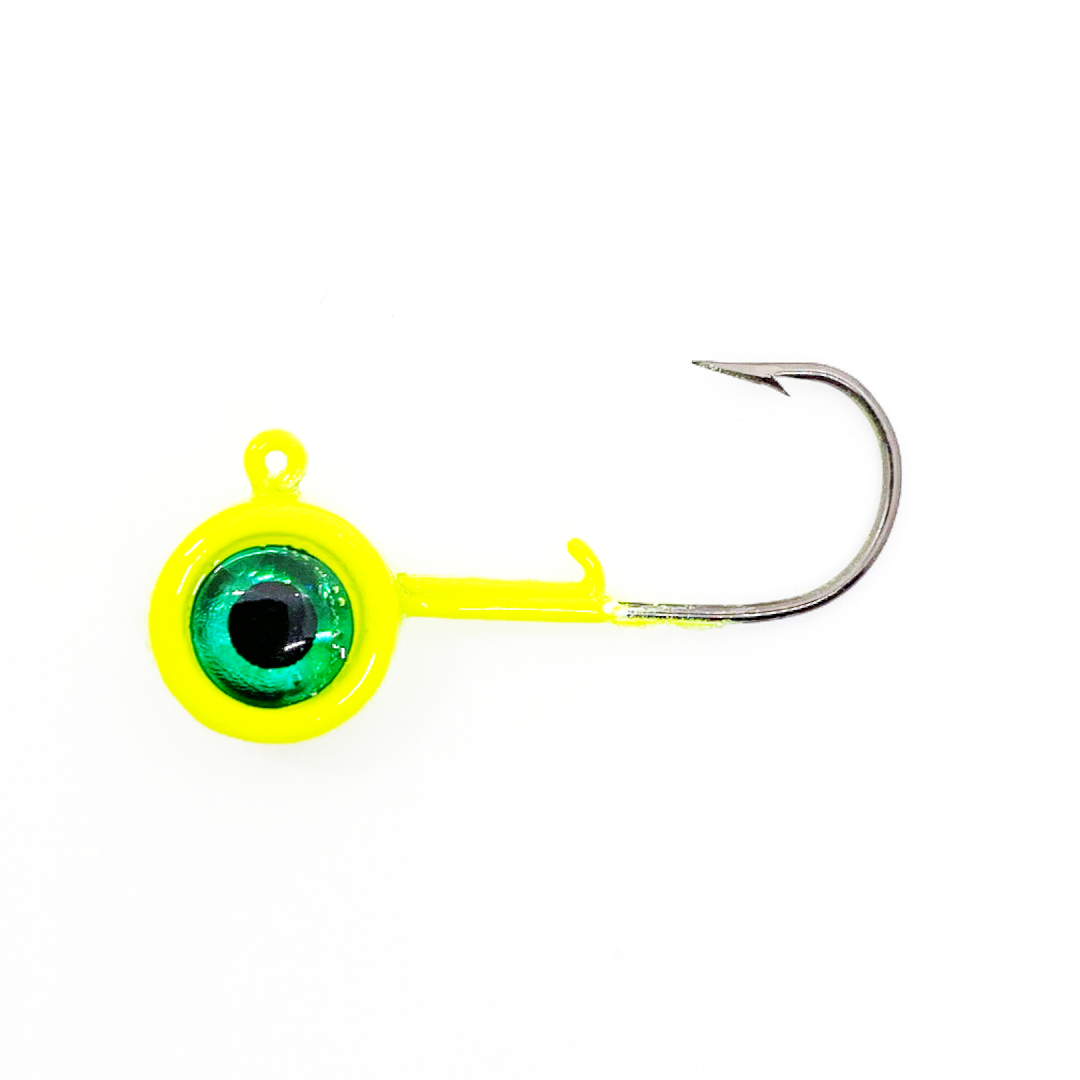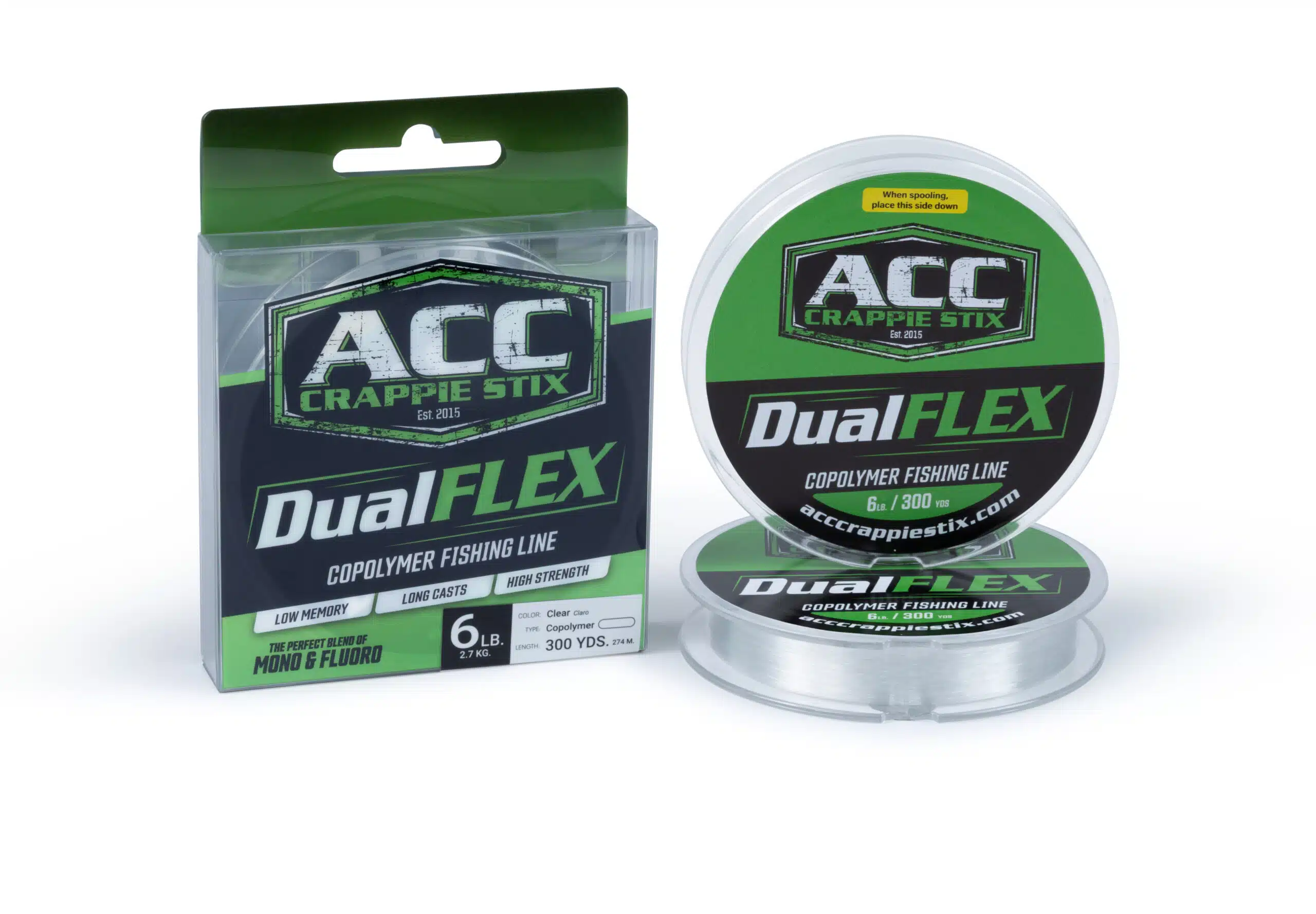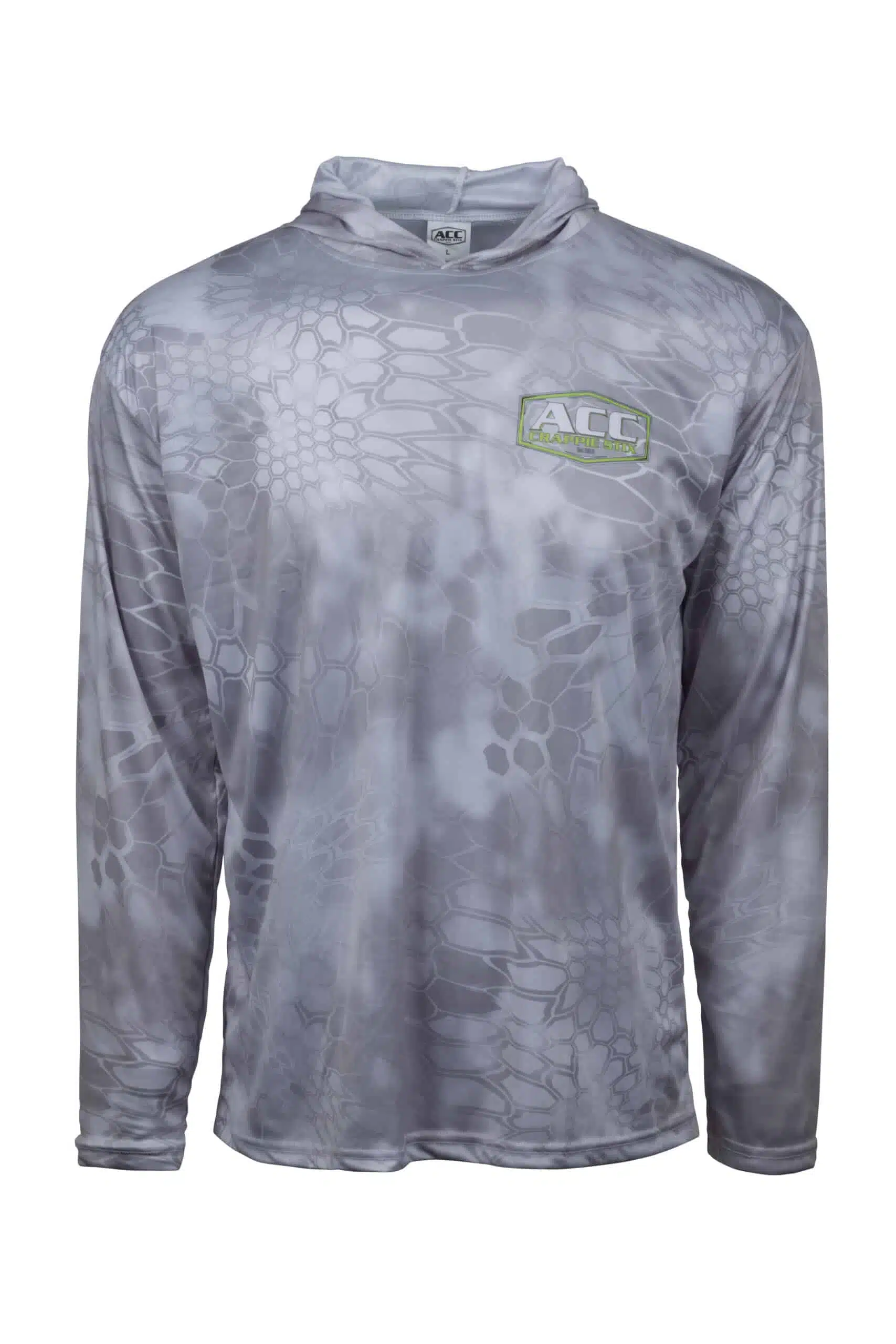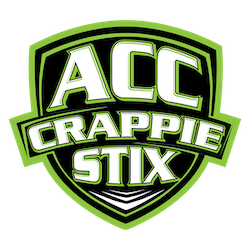Not even a hurricane slows Milligan in national debut
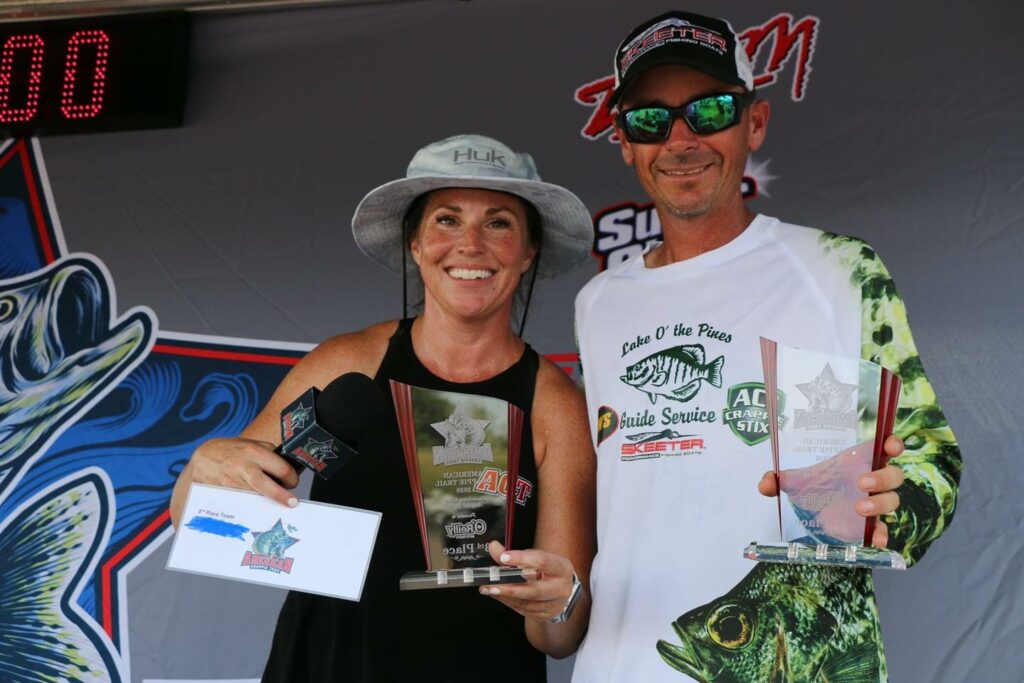
By Greg McCain
(Here’s the first of two parts on ACC Crappie Stix pro staff member Les Milligan’s debut in a national tournament, the ACT event on the Ouachita River in late August. In Part 1, Les relates the weather-related adventures leading up to and during the tournament. Coming soon, Part 2 provides details and analysis about the fishing during the tournament.)
Crappie guide Les Milligan had long dreamed of fishing on a national level. He just didn’t realize what all he would have to endure when he reached the pinnacle of crappie competition.
The 41-year-old White Oak, Texas, resident had developed his skills while crappie fishing almost his entire life and while guiding regularly in more recent years, mainly on Lake O’ the Pines. Little did Les realize when he finally entered the fray that he would be not only fighting nationally-known crappie-fishing experts but also enduring the wrath of Mother Nature.
Les chose to make his national debut in the American Crappie Trail (ACT) tournament on the Ouachita River in late August. His well-planned approach, however, did not include the knowledge that a major hurricane would plow through Louisiana the day before the two-day event started.
“I really wanted to fish this tournament,” Les said. “It’s been my life dream to fish on a national scale in competitive fishing.
“I was always so intimidated watching these guys, Capps and Coleman, other big names, all these pros who have won so many tournaments. I just decided to jump into one of these. Finally, I got my courage up, got my entry in, and was all set up.”
At least he thought so at the time.
Tournament week arrived, and Les took advantage of the first three practice days, narrowing his focus to a couple of areas on the 110-mile-long stretch of the Ouachita open to competition. He knew that two hurricanes were brewing in the Gulf but moved forward with his plans, knowing the unpredictable nature of storm paths.
“Practice started off very normal,” he said.
Les opened official practice on the southern part of the Ouachita fishery and went north on the second day of pre-fishing. An ominous sign of things to come occurred on that second day when torrential rains, although not associated with the hurricane, blew through the area.
Seeking refuge from the rain in his truck, Les unknowingly disconnected his kill switch when he tossed his life vest into dry storage before getting out of the boat.
“It was raining so hard, I was afraid the vest would inflate,” he said. “After the rain stopped, I get back in the boat and ‘click.’ Alarms are going on. The dash is all lit up with warning signs. I went into panic mode. I’m thinking that I’m doomed before I ever get started fishing.”
Les called a local Skeeter dealer, but the service department couldn’t check out the issue until the following day. Les called a friend, who calmed his nerves and eventually suggested a simple solution to the starting problem.
“He said, ‘By chance, have you checked the kill switch?’ “ Les said. “It hit me then what I had done.”
The third day of practice on the D’Arbonne Bayou went off without incident, leaving one more day to prepare for the event. The fishing was good, perhaps even better than Les had expected. He thought the potential for a good finish, even against the most accomplished competition and in the looming weather conditions, was waiting for him on the Ouachita.
“I was super excited,” Les said. “I had developed a good game plan, and it had come together. I had found the fish that would allow me to do well in the tournament.”
Les wasn’t as prepared for the events that took place on the final practice day and even after the tournament started.
Hurricane Laura came ashore in Cameron, LA, early in the pre-dawn hours on the final practice day, the day before ACT competition was to begin. West Monroe, LA, the host city for the ACT, is almost 300 miles north of the landfall area on the Louisiana-Texas border.
Even in the first hours after daylight, strong winds were already pummeling the northern Louisiana region, leaving Les with a decision to make. The final hours of pre-fishing were available according to tournament guidelines, but the winds, still at hurricane strength through most of the day, made fishing an unrealistic proposition.
“I decided it was not worth it,” he said. “I wasn’t going out there risking my life to pre-fish. I didn’t really want to have to fish (near the tournament launch site at Forsythe Landing) anyway. I sat there in the Airbnb all day long just watching the wind howling.”
The day actually wasn’t just spent sitting around. Les and the Airbnb owner got outside and did their best Jim Cantore impersonations as the winds continued to intensify. They kept a close watch on the huge pine trees that lined one side of the house, just praying that they weathered the storm.
An intense moment came when an oak on the property gave in to Laura and tumbled down. Although the oak was far enough away from the house to cause no damage, it just illustrated the intensity of the winds. Shortly after, the power went out.
“So here comes all this added stress,” Les said. “I already had my boat batteries charged, but I had to get myself busy to work off the nervous energy.”
Les took the time to hook a power inverter to his Skeeter’s on-board charger, hoping to maintain the charge. He also checked and re-checked everything – rods, reels, line, all accessories down to his cull tags.
“By this time, the hurricane was right on top of us,” Les said. “The eye wall was center-punching us. I’d never been in a Category 1 hurricane period, much less in a situation like this getting ready to fish a tournament.”
The power was still out at bedtime. An alarm was not an issue because Les had charged his phone in the truck, but the sleeping conditions inside the house were less than desirable because of the lack of air conditioning.
“I managed a few hours sleep, got up early, drove to the ramp, and got the boat in the water without any problems,” Les said. “The one good thing about the hurricane is that it was so fast-moving that the fishing day shaped up pretty well.”
The bite was good indeed, and Les found himself in fifth place at the end of the Day 1 weigh-in. The after-effects of Laura continued to plague the area, however.
“(ACT tournament director) Matt Morgan advised all the teams that things were really bad in town,” Les said. “He said, ‘Traffic is tremendous. There’s a ton of people flooding into Monroe. Gas is really hard to get, and ice is almost impossible to get.’
“He advised us that after weigh-in that we go find gas and go find ice. That’s exactly what I did. I was the first one to weigh-in, and I immediately left the launch area.”
Once back in West Monroe, Les encountered all of the issues suggested on the weigh-in stage. The ethical question of taking resources away from residents uprooted by the hurricane also crept into his mind.
“I got lucky,” he said. “The first place that I stopped to get gas had ice, but they had already limited it to two bags per person.
“When I bought that ice and I saw all the people in line for gas and ice, the thought went through my head, ‘Is this really right? I’m trying to get gas for a boat and ice to keep fish alive. These people are trying to get gas to reach the next town that might have a hotel open. They need ice to save their food. Is this even the right thing to do?’
“When I pulled up to fill up my boat, I felt like everybody there was looking at me. No issues though. Everybody seemed like they were all right with it. I decided to do what’s right for me. I’m trying to make a living too. I felt okay.”
More problems awaited Les back at the Airbnb. The power had not come back on. Almost half a million residences in Louisiana and Texas were without power. Power supplies in the West Monroe area were not fully restored for at least a week after Laura powered through.
“I got back, and the house was smoking hot inside,” Les said. “I also realized that I couldn’t sleep in those kinds of temperatures.”
Knowing that he needed a power source to recharge his batteries, Les contacted Matt Morgan, who suggested coming to tournament headquarters at the Ike Hamilton Expo Center in West Monroe. The expo center had retained its power through the onslaught, and various teams gathered there to re-charge after Day 1 of competition.
“I said my farewells to the (Airbnb) owner,” Les said. “He knew what was at stake for me and was okay with it.”
Les reached tournament headquarters, got hooked up, and hung out with some of the other teams already gathered there.
Even with the power dilemma solved, the misadventures of Les’ first tournament experience continued.
“I would have had a hard time sleeping any way just thinking about what’s going to happen the next day, much less sleeping in the back of the truck,” he said. “I rolled around in that back seat all night long. I might have got an hour of sleep.
“I’m a spiritual guy, and all I could do was pray to give me the strength and mental toughness to get me through the day to finish this fight.”
En route to the boat ramp, Les stopped for coffee and hopefully for another bag of ice. He normally carries at least three full bags on tournament days.
“I check the ice (in the store) and it is bone dry,” he said. “I had to go with what I had. Obviously some of the ice I bought the day before had melted, but it was all I had.”
Day 2 of competition started in much the same way as the previous one. He reached his destination about an hour away from the boat ramp and soon had a limit in the boat, but Les wasn’t sure if the quality of the crappie was good enough to move him up the leader board.
Well into the fishing day, one of those bone-chilling, goosebump-producing moments occurred. When it happened, Les knew that influences beyond his control were working in his favor. At the time, Les estimated that he had 10 lbs. of crappie in the livewell, a good total but not enough to boost him up the leaderboard.
“I see a big fish and when I drop down on it, a monarch butterfly lands right on my rod hand,” Les said. “I’m like, ‘I know who this is.’ That fish bites. It’s the biggest one that I’ve caught in six days of this event, 1.98 on scales.
“I just sit down, the holy spirit overcomes me and the Bible verse Phil. 4:13, ‘I can do all things through Christ who strengthens me,’ is in my mind.
“I sit there and I am just crying. I’m overwhelmed. I pull myself back together and get back to fishing. It all comes together. I’m catching some bigger fish now. I don’t even look at my scales throughout the day. I’m just catching as many as I can.”
Les walked across the stage with a 13.02 Day 2 total at the final weigh-in, not enough for a win but enough weight to eventually land him a third-place finish. Fishing amid some of the most experienced tournament anglers in the country, he even found himself sitting on the Millennium Marine hotseat for a fleeting moment.
Throughout the event, Les maintained a positive approach even though the conditions were not ideal. He said the overall ACT experience was incredible.
“It was really more than I could have dreamed of,” Les said. “Even with the issues associated with the hurricane, I still managed to maintain my focus and stay positive.
“The ACT tournament experience was great. I had always wanted to try to prove myself, and I feel good about what I accomplished.”
And not even Mother Nature prevented him from doing it.
Les Milligan operates Lake O’ the Pines Fishing Guide Service. His sponsors include Skeeter Boats, Yamaha Outboards, ACC Crappie Stix, and Lew’s Fishing. Follow him on Facebook or contact him at 903.445.6804 to book a trip on Lake O’ the Pines, Lake Fork, or Lake Bob Sandlin.
Greg McCain is a freelance writer from prime crappie country in northwest Alabama. He has hundreds of credits in state and regional print and digital outlets. Check out his recent articles in Alabama Outdoor News, Great Days Outdoors, CrappieNOW, or the Alabama B.A.S.S. Nation website.
